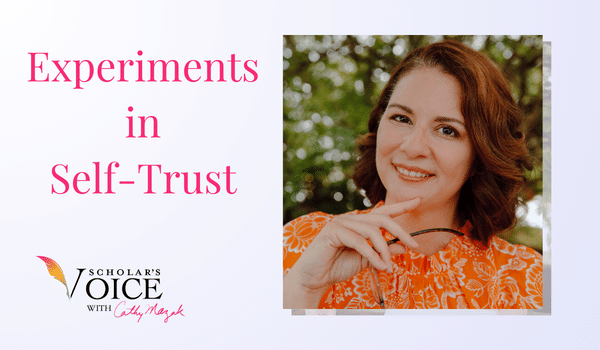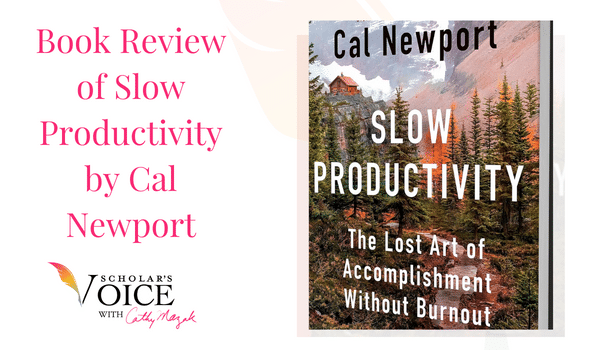The Making of Making Time To Write: The Book

Today’s episode is one final episode about the creation, writing, and publication of my book, Making Time to Write. I want to be vulnerable and real with you about how the creation of the book came about. I hope that it’s helpful to hear what my writing process is like, and what my book publishing process is like whether you are in a book field or not.
MORE DETAILS
When I first decided to write a book, I wanted to do it because I wanted to make what’s inside of our programs more accessible to a wider audience.
In this episode, I really want you to understand the arc of the book writing journey, and how the actual content of the book changed and developed as I was putting metaphorical pen to paper, and writing it out.
You’ll hear me explain the difference between the Navigate program, and the Making Time to Write book. Overall, the book gives the philosophy, while the Navigate program gives the how-to and support for the writing process. You’ll hear how I thought I would write Navigate into a book, but then changed my mind and came to find out what the book was really meant to be.
First Version of the Book
My original thought for writing the book was going to be actually that it was going to be a how-to manual, similar to the process that we teach inside of Navigate, our program designed to double your publication output. But, when I sat down to write the book I realized that I was wrong about that!
Narrowing Down the Scope
So, I sat down to write the book proposal and discuss the justification for a book that is really geared to women and nonbinary professors, rather than a book about writing that’s geared to all professors.
I began to draft out what is wrong with the patriarchy in particular that affects our writing, and how making time to write is kind of an act of resistance against the patriarchy. And that argument became a big part of the book proposal, and also the first chapter of the book.
I started out thinking it was going to be this how-to book. Then I wrote the proposal. And in the proposal, I made this big argument for how the patriarchy holds certain kinds of people in academia back from making time to write and how the cards are stacked against us. If we’re women, or nonbinary professors, as we try to navigate this very rigid structure and patriarchal system, which is academia.
Jane, whose program I was a part of said to me, “you’re not writing a how-to book, you’re writing a manifesto.” And I said, “yes, you’re right. That’s exactly right!”
So once I shifted from that mindset, I was able to focus on how it is the “Why” behind how we do all of our programs and the teachings that you’re going to find inside of Navigate, especially.
The Difference Between Making Time to Write and the Navigate Program:
Part 1 of the book:
- Chapter 1: How Academia Keeps us from Writing
- Chapter 2: Mindset reconfiguration on the twin scarcities: money scarcity & time scarcity, and how those are particularly developed early in your academic career and carried through your career.
Part 2 of the book:
- Building a sustainable relationship based writing practice.
- Navigate is much more hands on and how-to, while the book is such a nice compliment and deeper dive into a lot of the base foundational things or mindset shifts that you have to make in order to go about implementing the things we do in Navigate.
- Navigate comes with a big workbook and is very ‘doing focused’. The book has reflective journal kind of activities in it, which again complement the Navigate program so well.
Part 3 of the book:
- Resisting “Shoulds”
- People at every level of the career are talking about what they think they “should” be doing.
- I dig into this idea and talk about where these “shoulds” come from, and why it is patriarchy smashing to get rid of the “shoulds” and actually do something else.
- In the book, I get to really dig in to some more kind of mindset stuff around [writing practices] and connect it to these institutions that insist that we are equally productive all the time, that in every moment, our “productivity” stays the same as if we are robots, not humans.
- This part is really about when writing gets derailed and what to do, and how to think about derailments.
- The book goes into depth about the role of rest in writing.
Conclusion of the book:
- Writing as transformation
- Changing your individual approach or your mindset towards your career and towards writing and towards being an academic, and how to do that inside of oppressive structures, or why to do that inside of oppressive structures.
Final Thoughts
In Navigate, we map your pipeline, we make a plan for the year, and we make a five year plan. There’s a lot more about how to create your writing plan and act on it. Navigate the program, and Making Time to Write fit together really, really beautifully.
May Navigate Enrollment Offer
We are offering a book integrated version of Navigate. The goodies will be available for people currently in the Navigate program and for people in the Navigate Alumni Program as well.
The people who enroll in Navigate in May will get access to a book club that we are going to run live. There will be 3 book club coaching calls integrated into your Navigate syllabus.
The book is incredibly accessible, short, and could easily be read in a weekend.
The first 30 People who enroll in Navigate for our May start are going to get a physical copy of Making Time to Write, sent to them even though it doesn’t come out until the fall!
We will hold an information session for the May book club integrated version of Navigate, and you can sign up for the info session now, below!
REGISTER FOR THE INFO-SESSION NOW!
Official enrollment will be open from May 3-May 13.
Quotes:
- “Just by you reacting to those structures and dealing with those structures differently, you’re starting to erode them.”
- “So, the question is ‘What motivates you?’ and lean into that. Embrace those things, embrace your own practice, know it really well. And then embrace it and shape it and be in control of that. ”
- “The idea is to be more you. Stop resisting being who you are, and lean into being who you are. And that’s really going to have a great effect on how you feel towards the act of being a professor every day.”
Connect with me:
Facebook Page
Follow me on Clubhouse: @cathymazak
RELATED PODCASTS
Stay current in Academic Publishing
Subscribe to our newsletter:
In the Pipeline
writing tips, publishing trends, reading recomendations, free workshops





